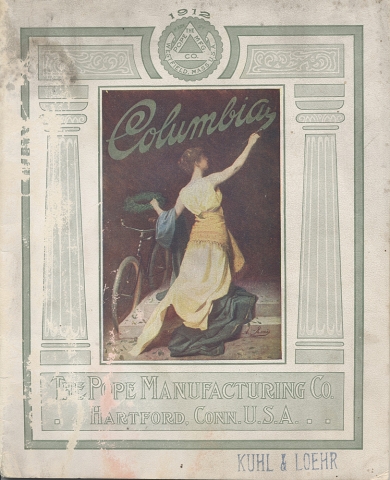Trade Literature Collection

Search for items, companies, or keywords in our Trade Literature Inventories
The Trade Literature Collection—the catalogs and publications that were once part of the merchandising of business—is internationally known as an important source for the history of business, technology, marketing, consumption, and design. Trade literature includes printed or handwritten lists, often illustrated, of items offered for sale, ranging in size from small pamphlets to oversized folios of several hundred pages. Manufacturers of all sizes and types issued trade catalogs to promote and sell their products. The present collection contains nearly 500,000 catalogs, technical manuals, advertising brochures, price lists, company histories and related materials representing about 40,000 companies. While the collection primarily features American companies, some foreign companies are included as well.
The majority of the Trade Literature Collection has not yet been digitized. Use the search box above to find collection records by company name, brand name, industry, and other related keywords. Many of the records are listed only at the company name level and will indicate how many publications from the company are available in the collection.
The Trade Literature Collection is primarily housed in the National Museum of American History Library, but other libraries such as the Cooper Hewitt, Smithsonian Design Library and the Dibner Library of the History of Science and Technology also hold trade catalogs. The collection records will indicate the location of the materials.
Inquiries about the collection can be sent to AskaLibrarian@si.edu. Visiting researchers can make appointments to use the collection in person by contacting the staff of the library location holding the materials of interest.
Trade Literature Collections Online
About the Collection
The Trade Literature Collection was acquired through both gifts and purchases. The largest single gift, primarily dealing with engineering and industry, came from Columbia University. Other institutions including the U.S. Patent Office, Harvard University, and the Center for Research Libraries transferred their trade catalog collections. Private collections like the Mel Heinz collection of catalogs for machine tools and metal working and the Burpee Seed Company collection of seed catalogs also have been added over the years. In the early 1990s, the Smithsonian’s Collection Acquisition Fund afforded the purchase of over 56,000 catalogs from the Franklin Institute.
Researchers use the trade literature collection to determine the history of companies or individual industries, describe styles from furniture to machinery, analyze marketing and management techniques, and examine illustrations of every product imaginable. Since the trade literature collection covers a wide variety of manufactured goods, it is invaluable in documenting objects in the Smithsonian’s and other museums’ collections. The collection is frequently consulted by historians, collectors, historical preservationists, authors, industrial designers, home renovators, and patent lawyers. One Smithsonian curator estimates that fully half the information in this collection is unavailable elsewhere.
We gratefully acknowledge the Smithsonian National Board, in particular Mr. Edgar Masinter, for their generous support in improving access to these important collections.
| Attachment | Size |
|---|---|
| 140.3 KB |



